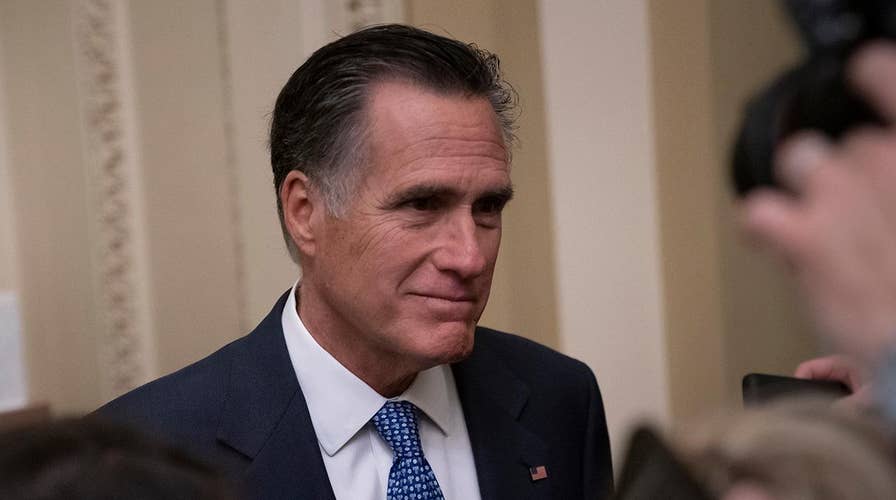Romney: If Democrats are going to act outraged over everything than nothing is an outrage
Katie Pavlich breaks down responses from moderate Republicans during the first day of the Senate impeachment trial.
Republican Utah state Rep. Tim Quinn has introduced a bill in that state's legislature that would allow voters to recall U.S. senators -- a possible swipe at Utah Sen. Mitt Romney, despite Quinn saying the bill isn't targeted at anyone in particular.
First reported by Deseret News, the bill would create a process by which a recall vote could go on the ballot after a petition by voters.
“I know that’s what’s going to be the narrative,” Quinn told the Deseret News when asked if the bill was aimed at Romney, the sitting GOP senator whose current term doesn't expire until 2025. “If it were, then it might make sense to have a sunset on it. That would not be the case.”

Utah state Rep. Tim Quinn introduced H.B. 217, legislation that would allow the state's voters to recall their senators in the middle of their terms.
SEAN HANNITY WARNS ROMNEY AS POLL SHOWS PITFALLS OF IMPEACHMENT WITNESS DRIVE
“Six years is a long time,” he said, according to the Deseret News.
Romney has been under pressure from Republicans for his seeming willingness to buck President Trump, especially amid impeachment proceedings. Specifically, Romney has been open to hearing witnesses in Trump's Senate impeachment trial at a time when most Republicans are in favor of a fast acquittal of the president.
The proposed bar for putting a recall vote on a ballot is quite high, requiring the signatures of 25 percent of "the number of active voters in the state." In addition, senators could not be recalled within the first year of their term, within a year of winning a recall election or within a year of the end of their term.
CLICK HERE TO GET THE FOX NEWS APP
The bill, if passed, would likely face a constitutional challenge.
An Arkansas effort to impose term limits on its representatives was struck down by the Supreme Court in 1995, with the majority opinion saying that states are not authorized to add requirements for individuals to qualify for federal office -- specifically, in that case, not having served in that body for a certain amount of time. Requiring senators to avoid a recall to keep their seats might run afoul of that same principle.





